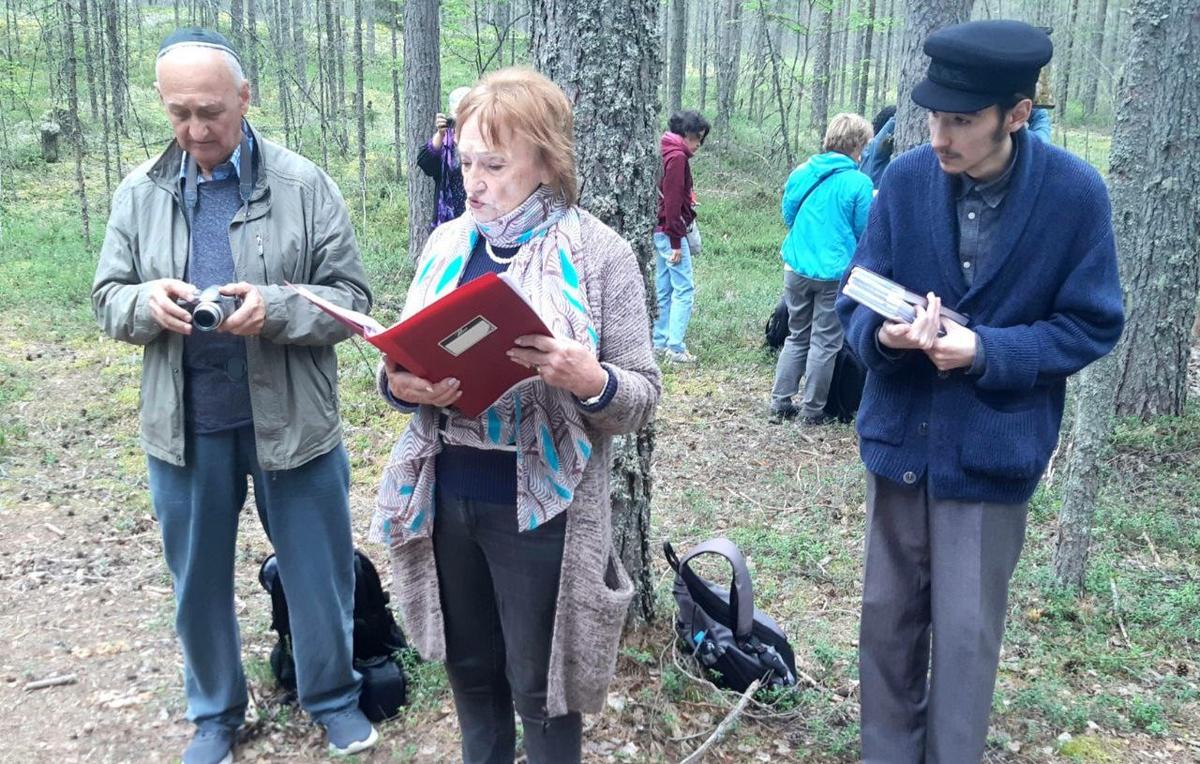
Memorial members attend a ceremony at the Sandarmokh Memorial Cemetery in Karelia, northwestern Russia, 5 August 2024. Photo: From Karelia With Freedom
A number of pro-government activists has attempted to disrupt a memorial service held for the victims of Stalinist terror at a cemetery in Karelia, northwestern Russia, human rights organisation Memorial said on Monday.
Organisers of the annual event at the Sandarmokh Memorial Cemetery said that various ultranationalist groups posted signs on trees in the forest around the site of one of the Soviet era’s largest mass graves ahead of the event. The signs read “What next? Monuments to Hitler and Bandera?”, a reference to far-right Ukrainian politician Stepan Bandera, while others accused the group of sympathising with fascists and paedophiles.
Memorial said that several busloads of pro-government activists arrived at the cemetery before the ceremony began on Monday. These included members of the Young Guard, the youth wing of the ruling United Russia party, and a pro-government group whose members identify as Cossacks and were masked and dressed in military uniform.
The groups reportedly installed “powerful speakers in the trees” which played loud patriotic music as their members chanted “Jews sponsored Hitler,” while those attending the remembrance ceremony attempted to read out the names of those killed by Stalin’s secret police at the site.
The Sandarmokh Memorial is the site of a mass grave in rural Karelia that was used as an execution site during Stalin’s Terror in the late 1930s. Over 6,000 people from some 58 different nationalities were executed and buried by the NKVD in 236 communal pits between 1937 and 1938, a large proportion of whom were Ukrainians.
The Day of Remembrance of the Victims of Political Repressions is held annually in Russia on 5 August to honour the memory of those who died at the hands of the Soviet regime. Floral tributes are left for the dead and the names of those known to have died at the site are read out. Several monuments have been erected to honour various national groups, including a stone cross bearing the inscription “To the murdered sons of Ukraine”.
